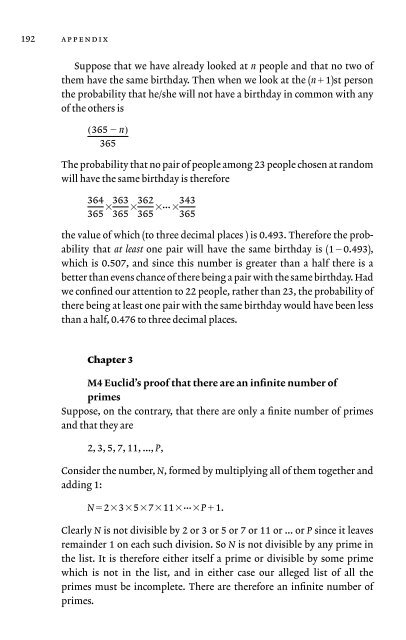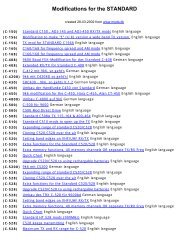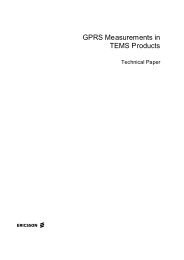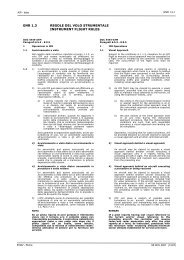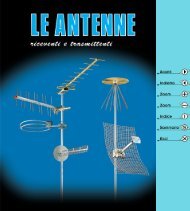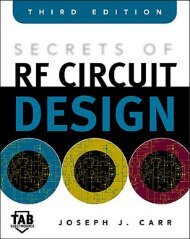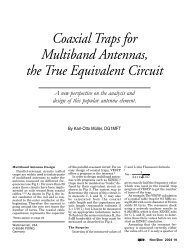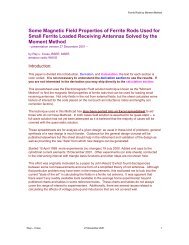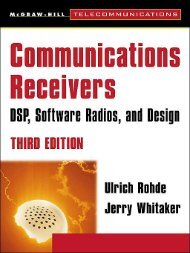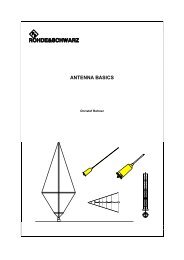Code and ciphers: Julius Caesar, the Enigma and the internet
Code and ciphers: Julius Caesar, the Enigma and the internet
Code and ciphers: Julius Caesar, the Enigma and the internet
You also want an ePaper? Increase the reach of your titles
YUMPU automatically turns print PDFs into web optimized ePapers that Google loves.
192<br />
appendix<br />
Suppose that we have already looked at n people <strong>and</strong> that no two of<br />
<strong>the</strong>m have <strong>the</strong> same birthday. Then when we look at <strong>the</strong> (n�1)st person<br />
<strong>the</strong> probability that he/she will not have a birthday in common with any<br />
of <strong>the</strong> o<strong>the</strong>rs is<br />
(365 � n)<br />
365<br />
The probability that no pair of people among 23 people chosen at r<strong>and</strong>om<br />
will have <strong>the</strong> same birthday is <strong>the</strong>refore<br />
364<br />
365 �363<br />
365 �362<br />
365 �•••�343<br />
365<br />
<strong>the</strong> value of which (to three decimal places ) is 0.493. Therefore <strong>the</strong> probability<br />
that at least one pair will have <strong>the</strong> same birthday is (1�0.493),<br />
which is 0.507, <strong>and</strong> since this number is greater than a half <strong>the</strong>re is a<br />
better than evens chance of <strong>the</strong>re being a pair with <strong>the</strong> same birthday. Had<br />
we confined our attention to 22 people, ra<strong>the</strong>r than 23, <strong>the</strong> probability of<br />
<strong>the</strong>re being at least one pair with <strong>the</strong> same birthday would have been less<br />
than a half, 0.476 to three decimal places.<br />
Chapter 3<br />
M4 Euclid’s proof that <strong>the</strong>re are an infinite number of<br />
primes<br />
Suppose, on <strong>the</strong> contrary, that <strong>the</strong>re are only a finite number of primes<br />
<strong>and</strong> that <strong>the</strong>y are<br />
2, 3, 5, 7, 11, ..., P,<br />
Consider <strong>the</strong> number, N, formed by multiplying all of <strong>the</strong>m toge<strong>the</strong>r <strong>and</strong><br />
adding 1:<br />
N�2�3�5�7�11�•••�P�1.<br />
Clearly N is not divisible by 2 or 3 or 5 or 7 or 11 or ... or P since it leaves<br />
remainder 1 on each such division. So N is not divisible by any prime in<br />
<strong>the</strong> list. It is <strong>the</strong>refore ei<strong>the</strong>r itself a prime or divisible by some prime<br />
which is not in <strong>the</strong> list, <strong>and</strong> in ei<strong>the</strong>r case our alleged list of all <strong>the</strong><br />
primes must be incomplete. There are <strong>the</strong>refore an infinite number of<br />
primes.


